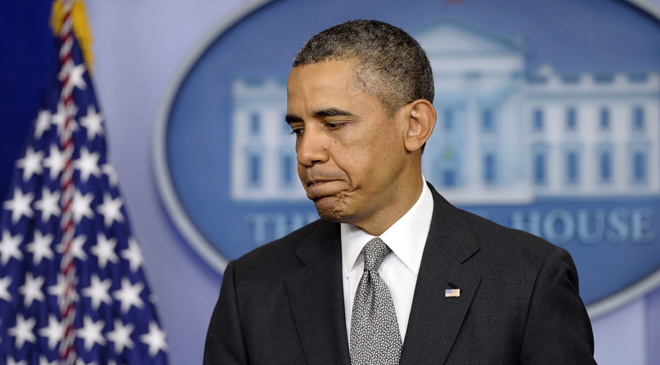The federal Obamacare health insurance marketplace, which has endured a rough rollout, wasn’t supposed to work like this. In fact, it wasn’t supposed to exist at all.
But refusal by Repubican-controlled states to establish health care exchanges — online marketplaces where the uninsured could shop for competitive insurance policies — complicated things for the feds as they developed their own website and likely contributed to the problematic launch of HealthCare.gov.
When Obamacare was passed, the administration expected that most, maybe all, states would create their own marketplaces. The federal option was supposed to be a fallback, in case some states struggled or simply refused to cooperate. Part of the expectation was that states with Republican statehouses would be more likely to establish state-based exchanges so they could maintain more control and not cede power to the federal government.
But as GOP opposition to the law hardened, almost every GOP-controlled state declined to set up their own marketplaces. A handful of Democratic states balked as well, overwhelmed by the significant technical lift and tight timeline that have hobbled the federal version.
So the feds ended up running the marketplace for more than 30 states.
The administration “initially didn’t expect to be running the exchange for so many states,” Jonathan Gruber, an MIT professor who helped draft the law and oversaw health reform in Massachusetts, told TPM. “This clearly led to more volume than expected early on.”
The White House has insisted that heavy traffic is a primary cause of the marketplace’s troubles.
A number of other factors compounded the issues. The Affordable Care Act did not provide funding for the federal government to establish the federal exchange, and Republicans in Congress refused to appropriate funding after the fact. So even as the size of the federal exchange grew beyond all original expectations, there was no money available to develop it. To get around this problem, the administration picked the pocket of the ACA’s public health fund and moved money around to pay for it.
Meanwhile, many states waited until the Supreme Court decision on the law last June — 15 months before the marketplace was to open — before deciding if they would establish their own marketplace or not. A handful — Idaho, New Mexico and Utah — were still wavering earlier this year between taking full control of their marketplace or not. In the end, 36 states decided to let at least some of their marketplace functions be run by the feds.
“This has been a very difficult rollout because the Congress has not unified in its opinion about the law, the fact that you had the Supreme Court decision,” Dan Mendelson, CEO of Avalere Health, an independent consulting firm, and former health official for the Clinton administration. “You have more states opting out over time, more and more of them. Those are all things that make the implementation all the more difficult.”
That’s not to say Republican intransigence is entirely to blame for the problems associated with the launch. The federal marketplace clearly has design flaws independent of how many states are using it, but each additional state on the federal exchange added another layer of work to do: another state insurance department to coordinate with, another state Medicaid agency to connect to, another customer service program to run.
“They really didn’t know how heavy the lift was going to be until fairly recently,” Tim Jost, a Washington and Lee University professor an Obamacare advocate who has followed implementation closely, told TPM. “I think really up to the Supreme Court decision, there was a lot of hope that still a number of states would pick up the marketplace.”
The state-run marketplaces also provide a ready example of how things should have gone. As the New York Times documented Wednesday, the state marketplaces have generally had a less glitchy launch than their federal cousin. Issues have arisen, but they are more easily addressed within a smaller system.
“The states by and large are enrolling people, and the online systems are by and large operating,” Avalere’s Mendelson told TPM. “The federal exchange has been hobbled software design issues that have slowed things down and have rhetorically made it more difficult at the federal level to do the aggressive outreach that the feds need to be doing.”









